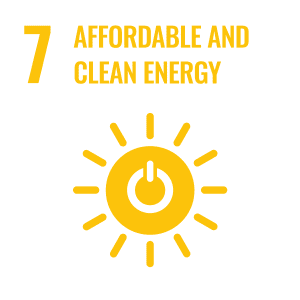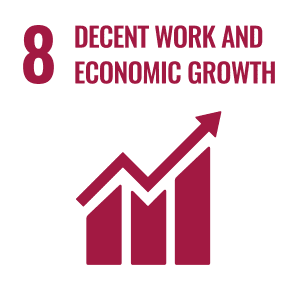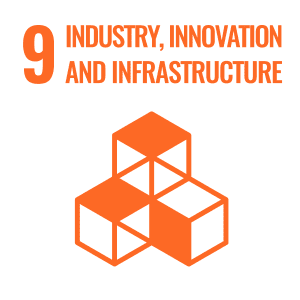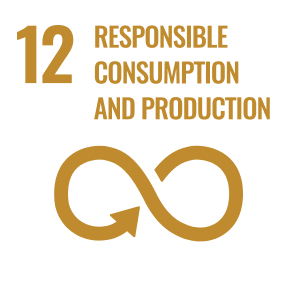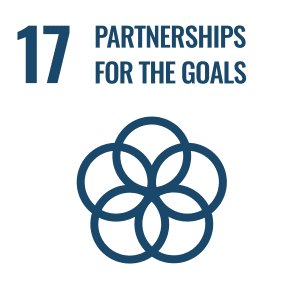OVERVIEW
Built for access
The BSc Access Module is a great opportunity for you to experience online undergraduate study and is your entry onto any of our popular BSc (Hons) programmes. This module will provide you with both the skills required to study our undergraduate degrees and the confidence to succeed and flourish at UCEM.
It is a fully supported online programme with great flexibility to earn while you learn, giving you the ability to study anywhere in the world.
THIS PROGRAMME IS FOR YOU IF:
- You want to gain entry into a UCEM undergraduate programme but don’t have enough UCAS points
- You want to refresh and develop your study skills and build your self-confidence
- You want to sample supported online study in the built environment at undergraduate level
The modules
You’ll study
Introduction to the Built Environment 1
This module provides an overview of the built environment sector and the role of the construction industry within the UK economy. Students will gain an appreciation of how legal, political, and social issues have shaped and continue to influence the sector. Students will gain an understanding of the project lifecycle and the development process with reference to the RIBA Plan of Work. The module introduces the key stakeholders and professions within the industry. It will enable students to identify with their chosen profession and understand that profession’s key responsibilities in meeting the client objectives.
As this is the first module students will study regardless of their programme, it will provide signposting to future modules where the knowledge and skills introduced by this module will be examined in further depth. It will also introduce the opportunities for wider learning provided at UCEM, through the cross-portfolio guest lecture events and the academic skills development provision. Students will also be encouraged to enrol as student members with the appropriate professional body. The content described in this paragraph is not assessed.
Should you require further information about programme content, please view the full programme specification which sets out aims, intended learning outcomes and assessment methods. Please note that modules are subject to change.
Sustainability
United Nations Sustainable Development Goals (SDG’s)
The 2030 Agenda for Sustainable Development is the United Nation’s economic, social and environmental plan to achieve sustainable development. The SDG’s are central to this ambition, and must therefore be a critical part of built environment curriculums.
How does this course align?
This course has been designed with the UN SDG’s in mind. The following SDG’s are of particular significance for this module:
How you’ll learn
Study methods
Studying online means taking control of when and where you study so you can study at your own pace, no matter where you are in the world. It means being able to balance your home and work life with your education so you can earn while you learn.
When you study at UCEM, you’ll be using our state-of-the-art Virtual Learning Environment (VLE), a specialised resource which provides you with everything you need to keep on top of your studies and succeed.
You’ll be guided through your learning with weekly study schedules and course guides, which you can adapt to suit your needs, pace and lifestyle. Studying online doesn’t mean studying alone as you’ll be fully supported by tutors and fellow students throughout your journey.
The online learning experience
Your learning experience with UCEM will be fully supported through a range of activities on our VLE. You’ll also have access to UCEM’s valuable and comprehensive e-library service, providing you with a wealth of subject-specific materials to support you throughout your studies.
Your learning will be broken down into the following (on average):
Participating in webinars and online discussion forums
Watching videos and voice-over presentations
Undertaking exercises and quizzes linked to programme material
Self-directed study time (25%)
Reading text books and study papers to develop your subject knowledge
Planning and writing coursework
Each 20-credit module equates to a total of 200 study hours broken down between directed online learning, self-directed learning and assessment.
The types of assessments used on this programme may include coursework (such as essays, reports, portfolios, reflections, problem or short questions or video presentations), computer-based assessments and computer-marked assessments (CMAs). The exact combinations of assessment will vary from module to module.
YOUR COMMITMENT
Your expected time commitment for the part-time route is around 7 – 10 hours per week
Support
How you’ll be supported during your studies
PROGRAMME LEADER
DAVID HUNT MA MLitt MRICS FHEA
As a BSc Access Module student, you will receive online study materials designed to refresh your study skills and build your self-confidence. You will be assigned a member of staff who will provide you with direct study support and work with you to develop an individual support plan. You will also benefit from detailed written feedback, group support sessions, study support webinars and dedicated surgery hours.
This team will help you navigate the world of online learning and the VLE. Whether you need help with online learning or managing your workload, this team is here to support you all the way through your journey.
This team is your first point of contact as a student. They will support you in your studies and queries, ensuring you are put in touch with the right teams and services within UCEM.
Our academic staff are experts in their fields and are here to make your studies with UCEM stimulating and inspiring whilst offering vital support and guidance along the way.
Your module leader is assisted by a team of module tutors to provide support via discussion forums and webinars.
This friendly team is here to listen and provide expert guidance, support and assistance at any time throughout your studies.

David has over 10 years of commercial real estate experience mostly gained in Central and Eastern Europe specialising in valuations.
He qualified as a chartered surveyor while working with the UK’s Valuation Office Agency before moving to DTZ’s Ukraine office. He later worked in Romania and Poland for a total of 3 years with Cushman & Wakefield where he undertook instructions across Central and Eastern Europe.
David is a former student of UCEM gaining a Postgraduate Diploma in Property Investment. He also holds a postgraduate certificate in Russian Language from Glasgow University and an MLitt in Viking Studies from the University of the Highlands and Islands. His career in higher education started when he joined UCEM in September 2015, principally as a tutor on various valuation modules at undergraduate and postgraduate level. He now leads UCEM’s foundation programmes and in 2017 he became a Fellow of the Higher Education Academy.
Entry requirements
You are required to be 18 years or over at the start of your programme.
Providing evidence
Evidence is required in the form of certificate or statements. You should send photocopies that have been verified by someone in a professional occupation.
Applications are assessed in accordance with the UCEM Code of Practice on Admissions and Recognition of Prior Learning.
Academic requirement
GCSE Grade 4 (or C) or above in English and Mathematics or an equivalent Level 2 qualification in English and Mathematics as defined by the Regulated Qualifications Framework (RQF) in England.
And either:
Have successfully completed Level 3 study (but have insufficient UCAS points to meet the entry criteria for a full BSc (Hons) programme.
Or
Be in relevant employment (relevant employment is employment in a job role that will support the applicant in developing the required skills, knowledge and behaviours).
And
A. For mature candidates (over 21): Have work experience that is commensurate with Level 3
B. For those under 21: Have three other GCSEs at grade 4/C and/or Level 2/3 vocational qualifications, as well as a company endorsement
– In both instances A and B, you will be asked to provide a detailed personal statement and/or a reference or letter of support from an employer or mentor to support the application.
The academic level of international qualifications will be assessed using UK NARIC. For more information on equivalent qualifications please contact admissions@ucem.ac.uk.
English language requirement
All UCEM programmes are taught and assessed in English. In addition to the programme entry requirements listed above, all applicants will therefore be required to demonstrate adequate proficiency in the language before being admitted to a programme.
You should have:
- GCSE Grade 4 (or C) or above in English Language or English Literature, or an equivalent qualification
- Grade 5.5 or above, with at least 5.5 in the reading and writing modules, in the International English Language Testing System (IELTS) academic test administered by the British Council
- 79 or above in the Internet option, 213 or above in the computer-based option or 550 or above in the paper-based option, of the Teaching of English as a Foreign Language (TOEFL) test
- Grade C or above in English (Language or Literature) at A/S Level
- A cognate sub-degree (Level 5) qualification taught and assessed in English from the University of Hong Kong or City University of Hong Kong.
Fees and funding
Financial options
£1,700 total fee
You can find out more on our payment options page.
You may be eligible for funding for your studies. This programme is designated for Student Finance, and students in England, Wales and Northern Ireland may apply for an Undergraduate Loan. Eligible students can apply for funding each academic year. The loan is then paid in three instalments throughout the academic year. It is also registered with the Skills Funding Agency for Professional and Career Development Loans. You can find out more on our student finance page.
Need a helping hand with your fees?
Sponsorship
Alternative funding
Have a talk with your employer about sponsoring your degree
Many employers will sponsor their employees on their degree as it will benefit them to have your knowledge within their business.
To find out more information, head to our employer sponsorship webpage.
Bursaries
Need a helping hand with your fees?
University College of Estate Management has partnered with the Chartered Surveyors Training Trust to fund 50% of the UCEM BSc Access Module fee for students who most need a helping hand to begin their built environment career.
You can find out more and apply for the #BEReady Bursary Scheme on our financial support page.
Your career
Unlock your potential
Join a UCEM BSc (Hons) programme
On successful completion of the BSc Access Module, you will be offered entry to the UCEM BSc (Hons) programme of your choice. You will be able to transfer your academic credits when you enter your BSc (Hons) programme. The programmes available are:
- BSc Quantity Surveying
- BSc Building Surveying
- BSc Real Estate Management
- BSc Building Control
- BSc Construction Management
CPPD
Alternatively, you can choose to be awarded a Certificate of Personal and Professional Development (CPPD) upon successful completion of the BSc (Hons) Access Module to recognise the learning you have completed.
You can find out more about your potential with our careers service.
This access module offers a fantastic array of opportunities across the built environment and beyond
You’ll also have UCEM career support for the three years after graduating so you can have confidence in taking the next steps in your exciting career
“The access module is an excellent gateway to UCEM’s main disciplines, whether in building control, building surveying, construction management, quantity surveying or real estate management. It covers relevant technical skills that will prepare students for undergraduate study and taking one initial semester will allow students to experience online study at a higher level before committing to a full bachelor-level programme. The programme is also unique in that it features additional dedicated study support that helps students adapt to university study.”
David Hunt
Programme Leader, BSc Access Module
Application process
It’s time to apply
Apply by 21 August 2023 to start on 25 September 2023
Apply by 19 February 2024 to start on 25 March 2024
USEFUL CONTACTS
Admissions Team
UK (Free): 0800 019 9697 (Option 1)
International: +44 (0)118 921 4696 (Option 1)





